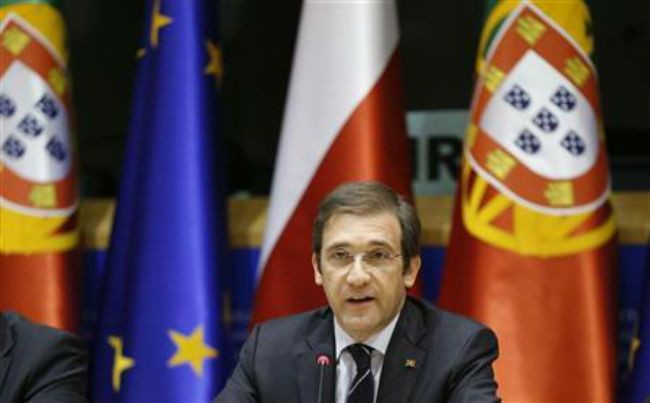
Support for Portugal's ruling Social Democrats fell further behind the opposition Socialists after the center-right government unveiled the largest tax increase in living memory, an opinion poll showed on Friday.
The survey by Eurosondagem pollsters showed the Social Democrats of Prime Minister Pedro Passos Coelho down 3 percentage points from a month earlier at 26.9 percent.
Its ruling coalition partner, the rightist CDS-PP, was little changed at 10.1 percent.
The Socialists edged up to 35 percent support and stand just behind the combined total for the ruling coalition, the difference between them being smaller than the poll's margin of error of 3.05 percent.
The previous Eurosondagem poll was published just before the 2013 budget was unveiled. The government insists the hefty tax hikes are the only way to meet the fiscal goals under an EU/IMF bailout, without which debt-riddenPortugal would lose all credibility and be unable to finance itself.
Bailout austerity has already caused the country's worst recession since the 1970s.
Although it was the previous Socialist administration that requested the bailout in April 2011, the Socialists have turned against the belt-tightening drive in the past two months and say Portugal's experiment with austerity has failed.
Portugal's economic situation is becoming more critical with increasing signs of a deepening slump. Workers staged a general strike this week and opposition to austerity is rising.
Two smaller left-wing parties, the Communist-Green alliance and the Left Bloc, have gained popularity and have risen to around 10 percent support each, the survey showed.
The main ruling party, which took power in June 2011, has already hit levels of around 24 percent support in other polls.
The government, elected for four years, has a solid majority in parliament and there is little chance of an early election.
The new poll, published in the online version of Expresso weekly newspaper, surveyed 1,033 people between November 7 and 13.
© Thomson Reuters.




